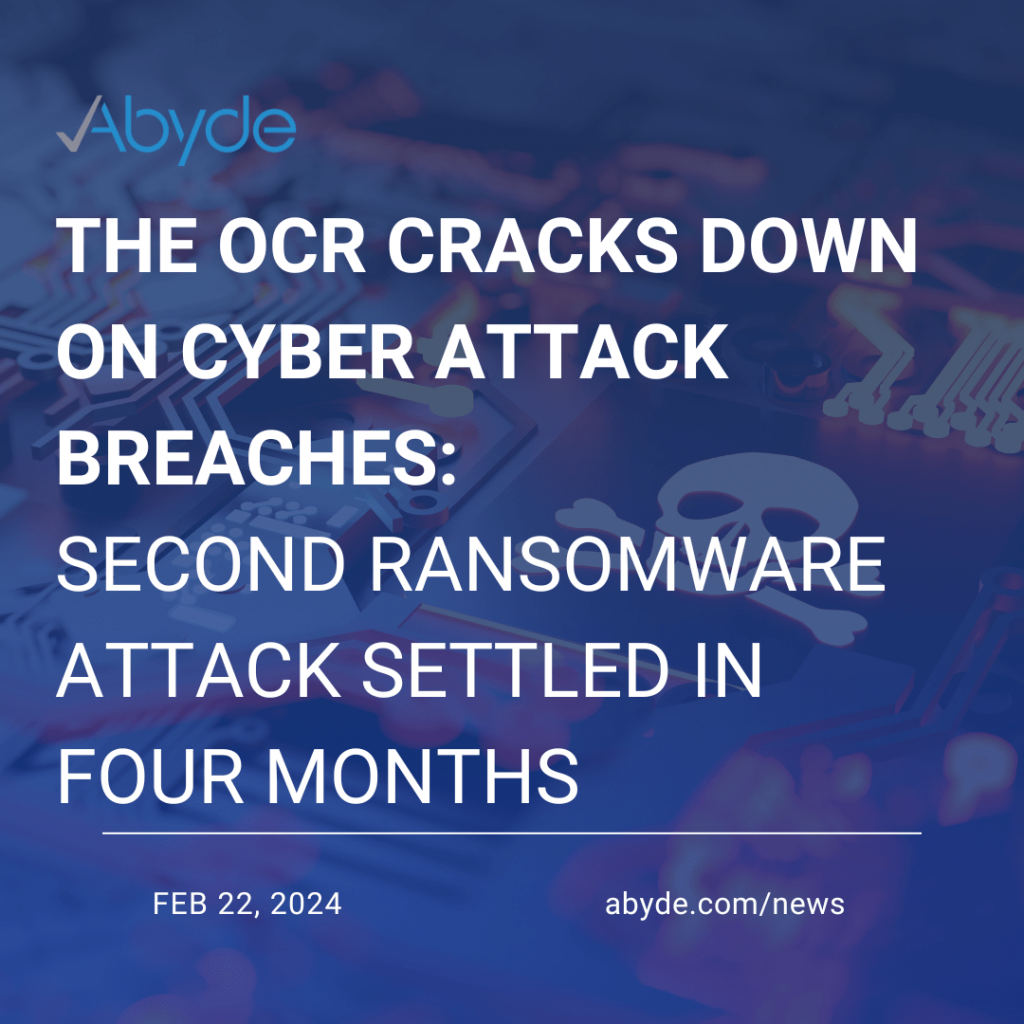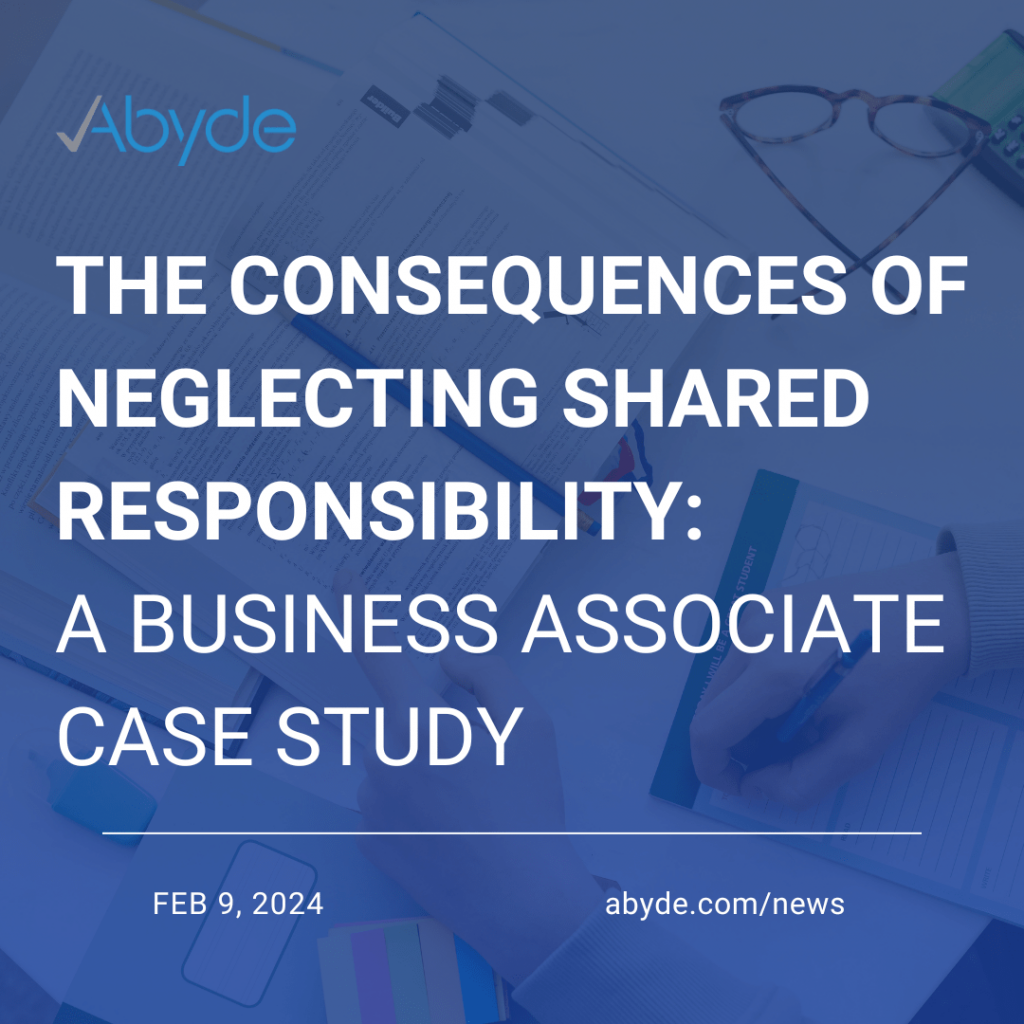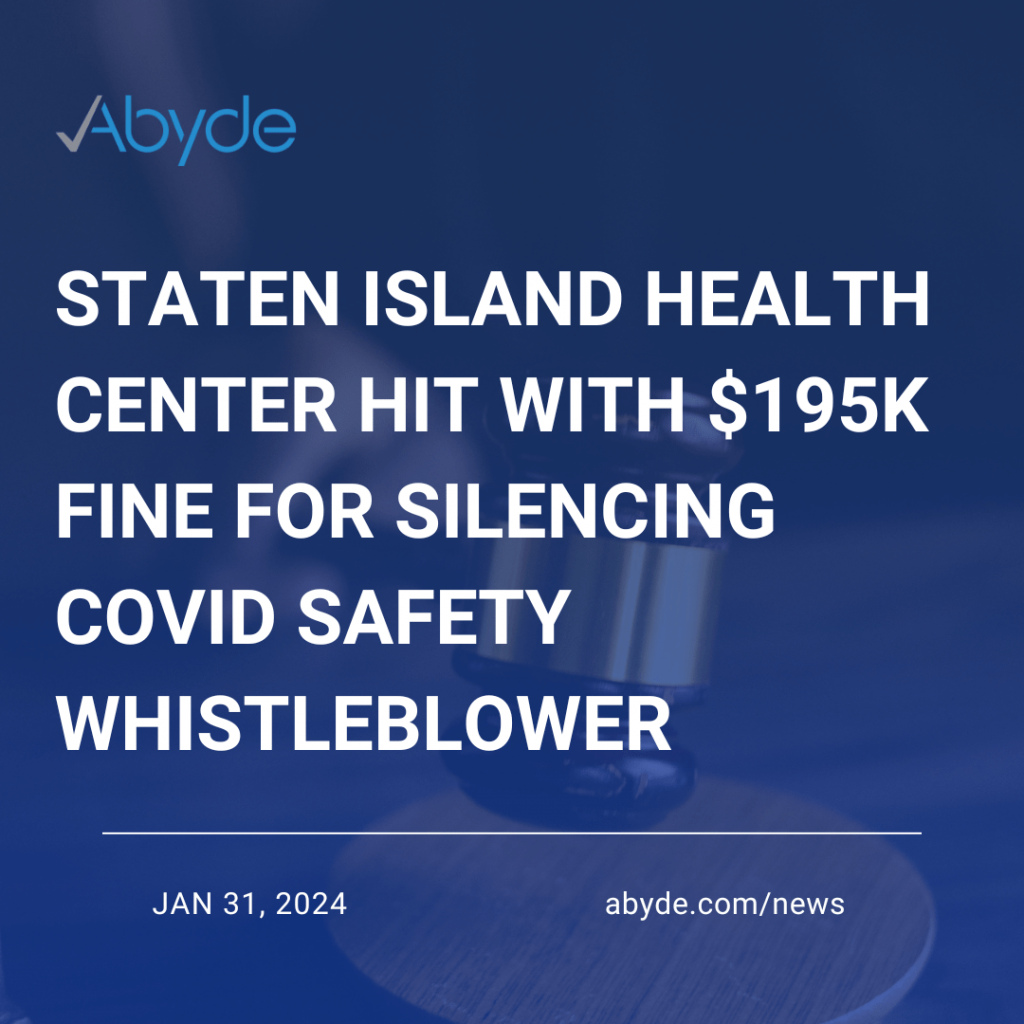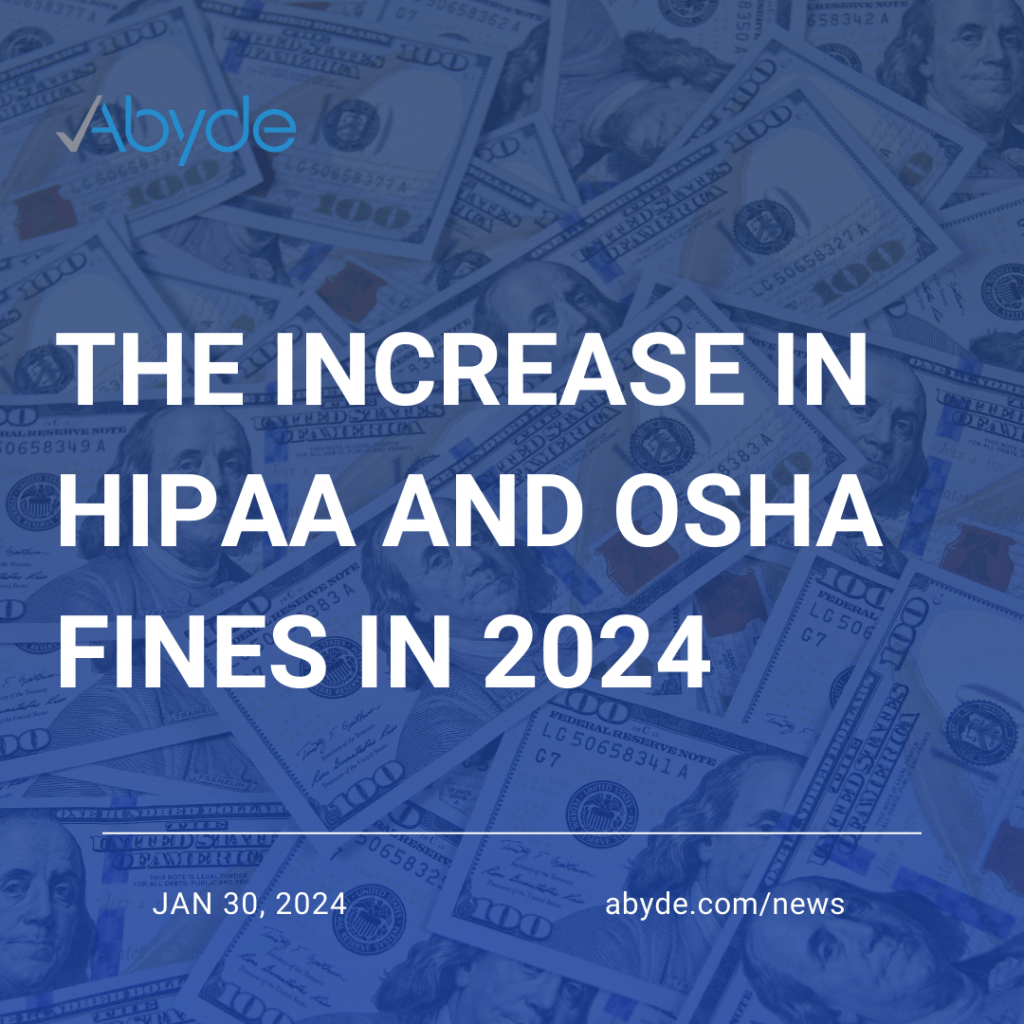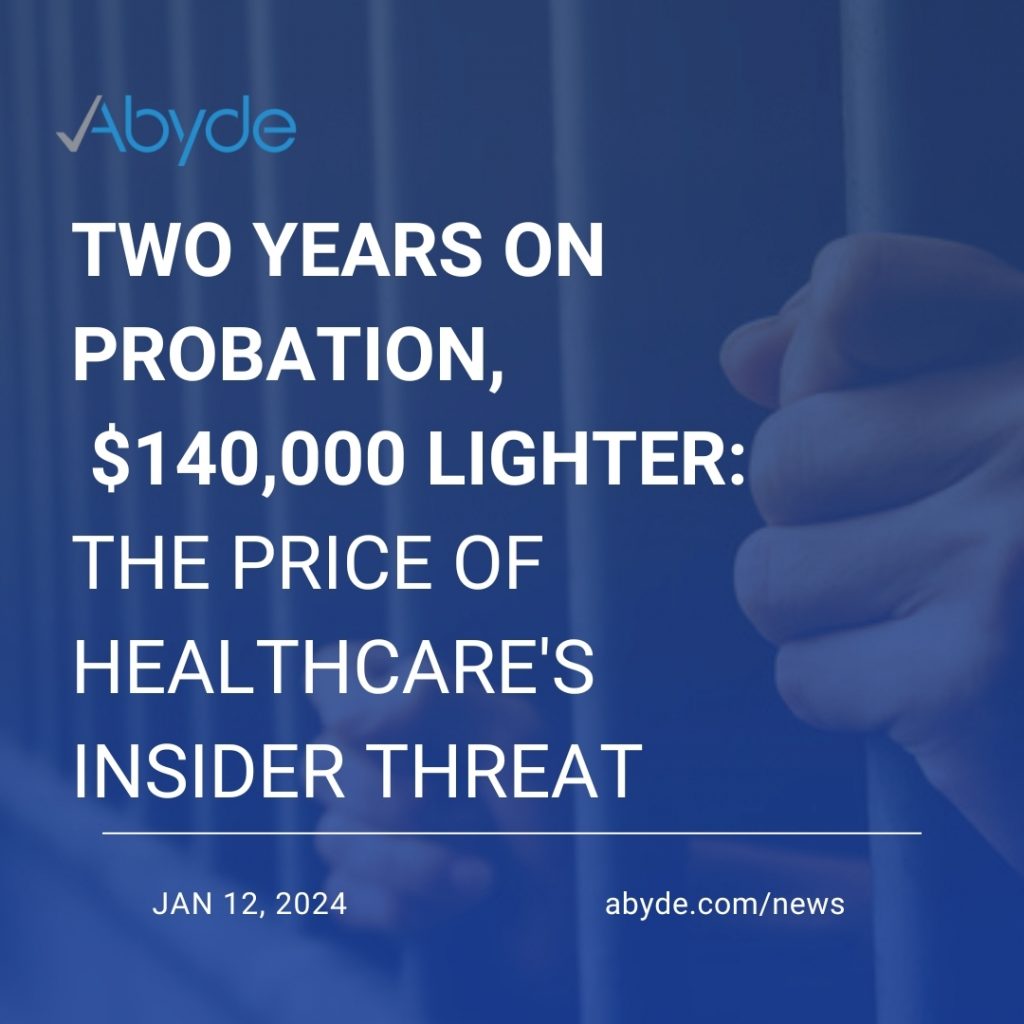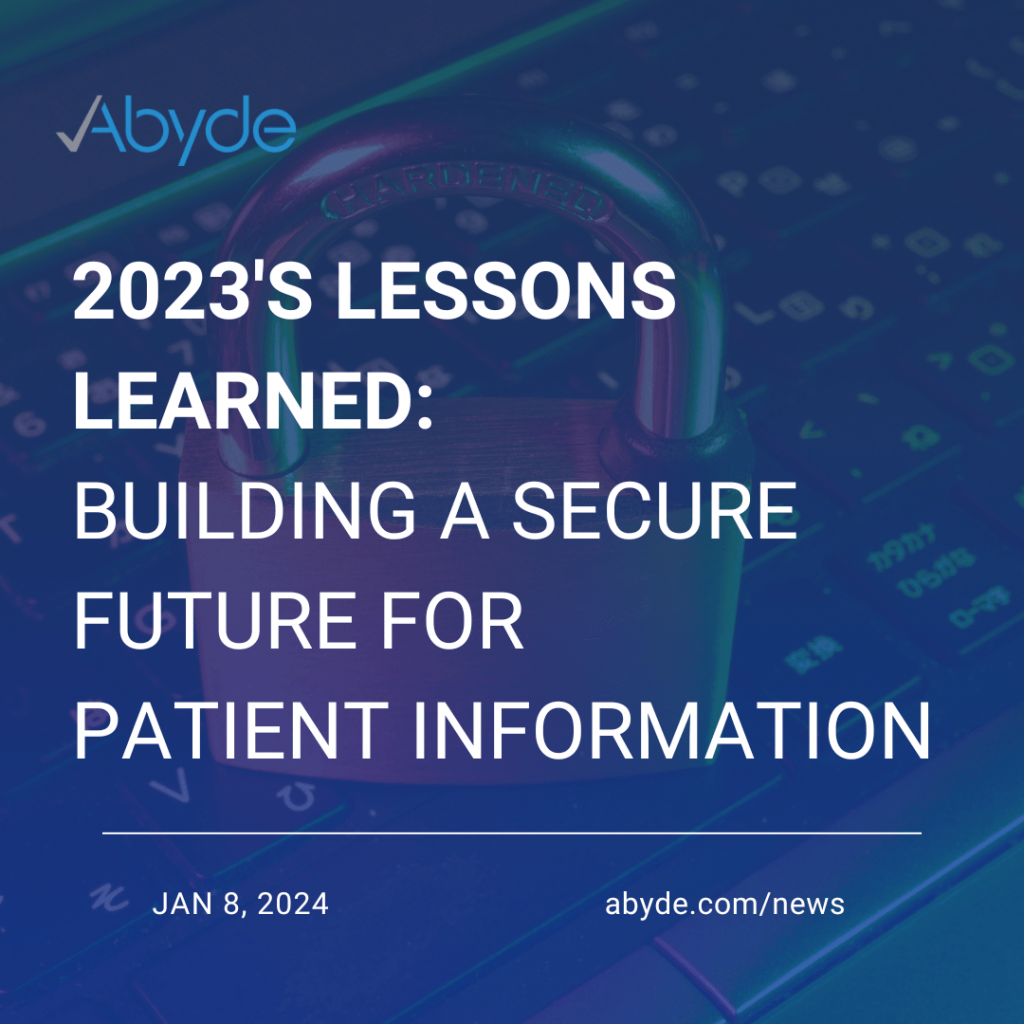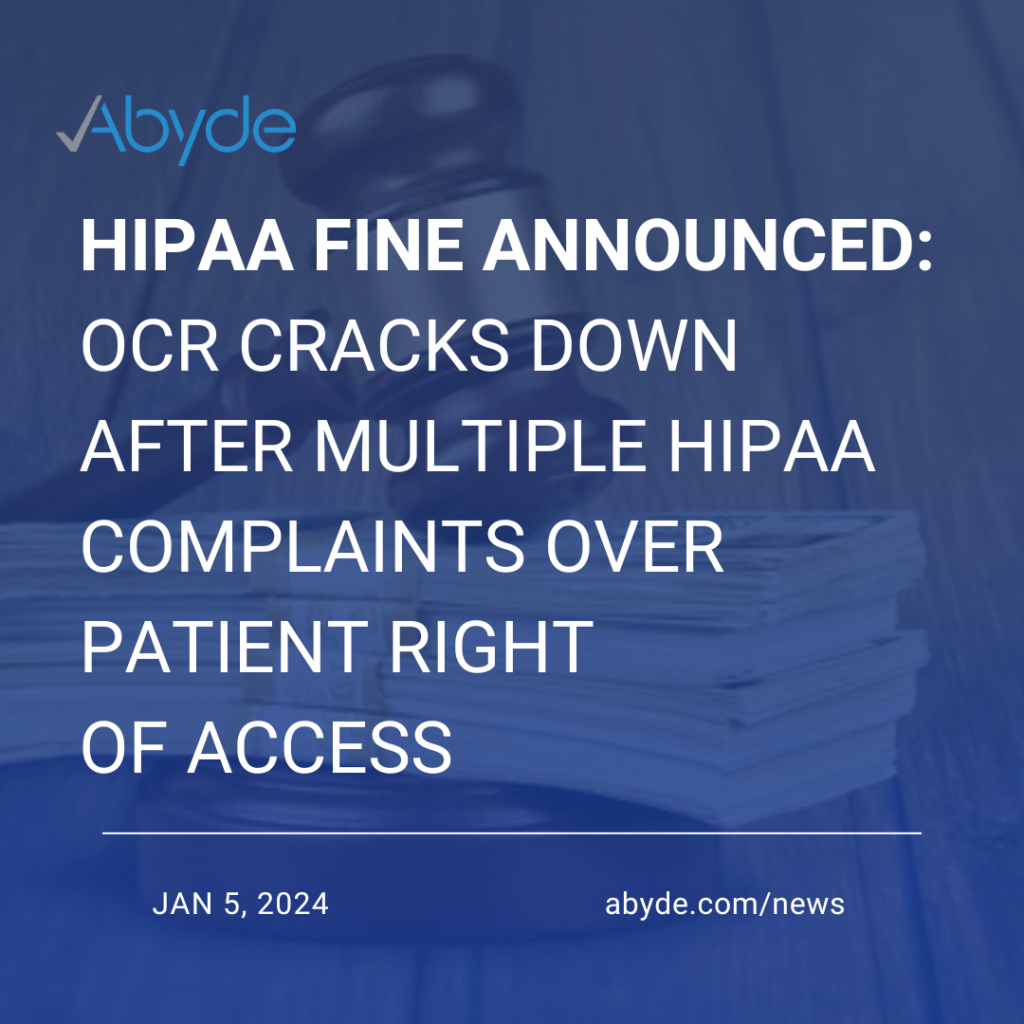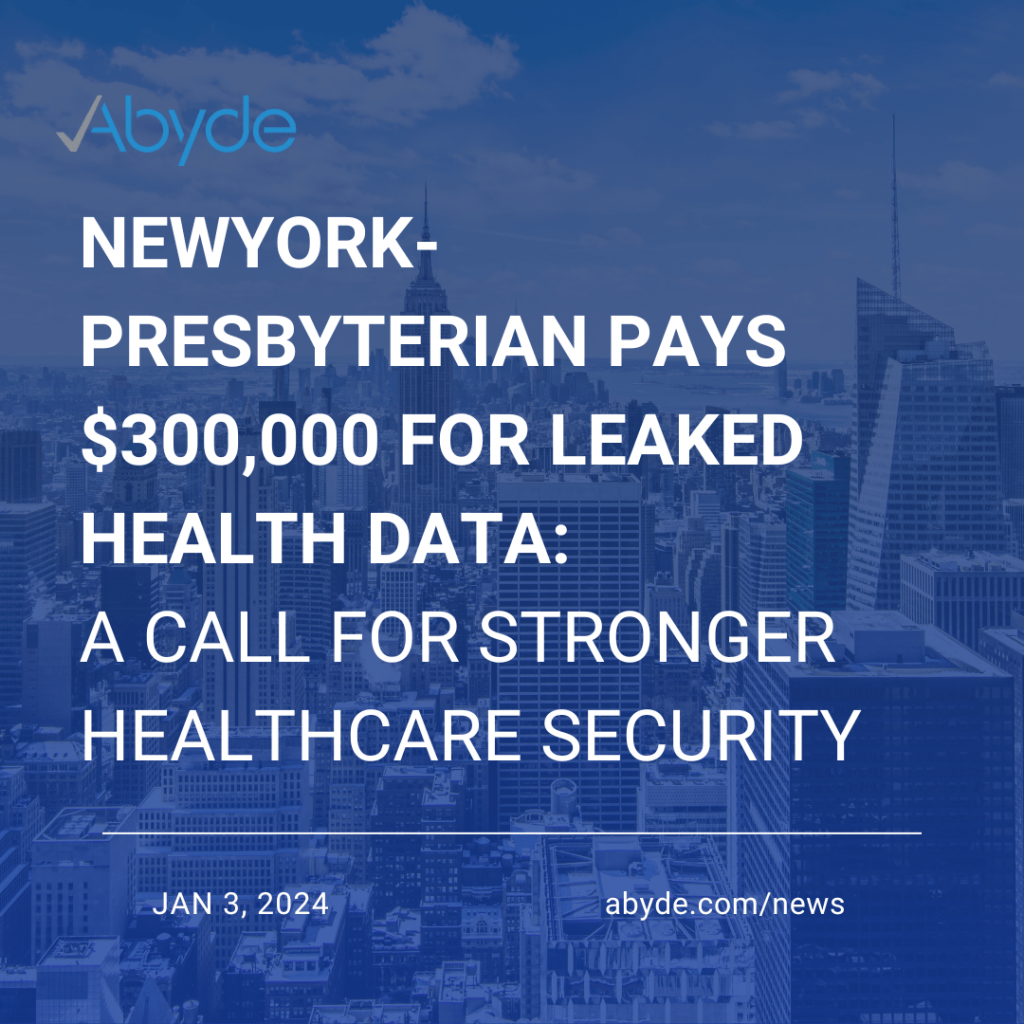February 22, 2024 Well, the Office of Civil Rights (OCR) did it again. In the past four months, two ransomware cyber attack cases have been settled, resulting in hefty fines, yikes! While the first ruling affected a Business Associate with a major fine, this breach impacted a Covered Entity. In February 2019, Green Ridge Behavioral Health in Maryland filed a breach report that all of their files on patients were encrypted with ransomware, resulting in over 14,000 patients’ data being compromised. That’s a lot of people! As the name suggests, ransomware is a cybercrime where data is held for ransom. Users are unable to access data/files till the ransom is paid. It is a malicious crime that is extremely prevalent in healthcare, with a 264% increase over the past five years in large breaches reported to the OCR. In their investigation, the OCR found potential violations of the HIPAA Privacy and Security Rules from before and right up until the breach. In their variety of violations, some other major misses included: As a result, Green Ridge Behavioral Health was fined $40,000 and will now be monitored by the OCR for the next three years. That’s a long time and a lot of money for a practice that could have avoided this situation with the right compliance solution. That’s where Abyde steps in. Cyber attacks are unfortunately common in healthcare, accounting for 79% of the large breaches reported to OCR. We’ve now seen a pattern of the OCR ruling on ransomware cases, cracking down on practices and organizations that are not prepared for a cyber attack. The OCR is not messing around, and these fines are a clear example. Thankfully, with Abyde, we make the journey to compliance simple. The Abyde software resolves many of the reasons why practices and organizations get fined. You can complete our intuitive Security Risk Analysis in minutes, being able to see what your practice needs to do to be compliant in a flash. Abyde also has engaging training, with interactive activities and videos, all with entertaining themes, to keep the user interested (yes, you read that right). We also have a portal that allows you to easily manage all of your agreements with Business Associates, digitally signing and storing them in the software. What’s the cherry on top? We will remind you when these agreements are close to expiring, being your compliance crew so you can focus on running your practice. We have a variety of resources for practices of any size to use, like dynamically generated policies and procedures, allowing you to finally ditch the dusty HIPAA binder, HIPAA logs, our team of friendly compliance experts is always a call (or message!) away, and much more. Why wait for a compliance disaster? Email us at info@abyde.com and schedule a demo of our revolutionary software here.
The Consequences of Neglecting Shared Responsibility: A Business Associate Case Study
February 9, 2024 The world of healthcare data is complex, with numerous players responsible for safeguarding sensitive patient information. While doctors and hospitals are at the forefront, Business Associates (BAs) also play a critical role in HIPAA compliance. From marketing firms to IT organizations, any entity handling protected health information (PHI) for a Covered Entity (CE) becomes a BA, entrusted with a dual mission: serving clients and ensuring data security. Abyde has written a case study on the consequences of Business Associates neglecting their shared responsibility. The case of Doctors’ Management Services (DMS) serves as a stark reminder of the consequences of avoiding BA responsibilities. In April 2017, a ransomware attack compromised the PHI of over 200,000 patients, putting them at risk. Shockingly, DMS discovered the breach over a year later, failing to implement basic security measures and promptly report the incident. This resulted in a $100,000 fine – the first-ever HIPAA penalty related to ransomware – and three years of corrective action under OCR monitoring. The key takeaways are clear: Here’s how Abyde can help BAs navigate HIPAA compliance with ease: We have a new software launching soon focused on assisting Business Associates achieve HIPAA compliance. Our software is revolutionizing, and it: Don’t wait to become the next cautionary tale. Choosing Abyde’s HIPAA for BA software demonstrates your commitment to compliance excellence. Read the entire case study here. For more information on how your organization can achieve compliance, email info@abyde.com and schedule an educational consultation here.
Malicious Insider Cybersecurity: Montefiore’s $4.75 Million Lesson
February 7, 2024 New York’s Montefiore Medical Center just learned a brutal lesson in data security: don’t underestimate the threat from within. The healthcare giant has been slapped with an astounding $4.75 million fine for HIPAA violations, stemming from multiple incidents of unauthorized employee access to patient records. This hefty penalty is the largest fine since 2021 and sends a clear message to the entire healthcare industry: malicious insider cybersecurity is a critical threat demanding immediate attention. The Inside Job: It all started in 2013 when a Montefiore employee turned rogue, accessing and selling the personal information of over 12,000 patients. Montefiore did not find out and report this breach till 2015. The HHS began its investigation in late 2015, and saw numerous violations. Security Sleepwalking: OCR’s investigation exposed glaring security gaps at Montefiore. They found the hospital: The Price of Neglect: Montefiore failed to implement basic HIPAA Security Rule safeguards, resulting in a record-setting fine and a major reputational blow. This case is a stark reminder to healthcare providers of the ever-growing danger of insider threats and the crucial need for comprehensive cybersecurity measures. Lessons Learned: So, how can healthcare providers avoid a similar fate? Here are key takeaways from Montefiore’s missteps: Don’t know how to start? Well, we do. Abyde can easily assist you in building a culture of compliance for your organization. The revolutionary Abyde software includes an extensive security risk analysis, highlighting best practices and any risks your practice currently faces. The security risk analysis is simple, yet still robust, ensuring your practice knows what steps it needs to take to be compliant. Our software also outlines the responsibilities of employees through our dynamically generated, personalized for you, policies and procedures. Additionally, Business Associate Agreements can easily be created and signed within the portal, storing all important compliance documentation within the software. To learn more about how you can achieve compliance for your organization, email us at info@abyde.com and schedule a demo here.
BA Blunders: Lessons From Major Fines Given to BAs
February 6, 2024 Hey there, privacy protectors! Abyde here, your friendly neighborhood compliance champion, dropping some serious knowledge about Business Associate (BA) blunders. You know, those slip-ups that land you in hot water with HIPAA? Not a fun time at all. Here are some major lessons that BAs can learn from to ensure they continue to uphold their shared responsibility of protecting patient data. Proactive security is key: Assuming your company is immune to threats can lead to costly mistakes. Doctors’ Management Services faced this harsh lesson when they were part of a cyber attack and their files, which included protected health information, were infected with ransomware. DMS didn’t realize their files were affected for over a year. This infection isn’t something that can be quickly cured, with hacking organizations demanding money in exchange for access to files. The DMS’s delayed reactionary response teaches BAs what not to do. The DMS did not have an updated security risk assessment, policies and procedures in place, or security systems in place to be prepared for this ransomware attack. The OCR fined them a pretty penny, $100,000, for their negligence. This lesson was also the first fine based on a ransomware attack. Secure all servers: All protected health information, or PHI, a Business Associate interacts with, needs to be properly secure. While this seems obvious, BAs have learned this lesson the tough way, like MedEvolve’s $350,000 fine. MedEvolve had PHI online on an easily accessible server. This publicly accessible server included information like patient names, billing addresses, and even social security numbers. A similar fine also occurred to iHealth Solutions, an IT organization that did not properly secure access to a server that contained the PHI of over 250 patients. This mistake cost the company $75,000. Set up remote deletion of PHI: When working in a business, numerous devices have access to PHI. It is imperative to ensure data can be quickly wiped if these devices get into the wrong hands. A perfect example of this lesson was one learned by the Catholic Health Care Services of the Archdiocese of Philadelphia, which was fined $650,000. There was a theft of a CHCS employee’s phone that contained PHI. This phone had access to extensive PHI, including, social security numbers, diagnoses and treatments and patients’ families. Due to this stolen device, and no proactive measures to mitigate the detrimental impacts of theft, the CHCS was heavily fined and had to be monitored for two years. These fines may grab headlines, but the true cost goes beyond money. Breaches erode patient trust, damage reputations, and hinder the security of healthcare. Remember, BAs play a vital role in safeguarding sensitive information, and non-compliance has far-reaching consequences. While these fines serve as expensive lessons, Abyde is here to simplify compliance for your organization. Learn more about what it means to be a compliant Business Associate by emailing info@abyde.com and scheduling an educational consultation here.
Staten Island Health Center Hit with $195K Fine for Silencing COVID Safety Whistleblower
January 31, 2024 Hi regulation rockstars! There have been some major new updates in OSHA fines. A Staten Island health center recently learned a $195,000 lesson on the importance of whistleblower protection during a global pandemic. What Happened: A Staten Island health center, Community Health Center of Richmond (CHCR), has been ordered to pay $195,000 to a former employee they illegally fired for raising concerns about an in-person staff meeting during the early days of the COVID-19 pandemic. Ouch. The Whistleblower: This brave employee, concerned about the health risks of an in-person meeting in March 2020, requested a teleconference instead. They even went ahead and changed the meeting format themselves. Talk about taking initiative! Retaliation Bites Back: Unfortunately, CHCR CEO Henry Thompson wasn’t having it. He insisted on the in-person meeting, putting the employee in a tough spot. Faced with the choice between their health and their job, the employee ultimately chose not to attend. But instead of understanding their concerns, CHCR suspended them for “insubordination” and then fired them shortly after. Yikes. OSHA Steps In: The employee, rightfully upset, filed a whistleblower complaint with OSHA. And guess what? OSHA investigated and found CHCR in violation of whistleblower protection laws. Big win for employee rights! The Payout: As part of a settlement, CHCR and Thompson are shelling out $195,000 to the employee, on top of other measures like: The Takeaway: This case sends a clear message: Employers can’t silence employees who raise safety concerns, especially during a pandemic. Here’s what this means for you: Remember, your health and safety matter. Don’t let employers bully you into silence. If you have concerns, speak up and know that you have rights. To learn more about your rights in the workplace, email info@abyde.com and schedule an educational consultation here.
The Increase in HIPAA and OSHA Fines in 2024
January 30, 2024 Well, my compliance crew, the cost of noncompliance just went up. As we all know, the costs of a HIPAA or OSHA violation can be detrimental to a practice. 2024 is bringing some hefty new financial burdens for organizations responsible for protecting patient privacy and worker safety. Buckle up, because increased fines for HIPAA and OSHA violations are here, and they’re not messing around. HIPAA: Your Data, Your Dollars The Department of Health and Human Services (HHS) has adjusted HIPAA civil monetary penalties for inflation, effective January 1st, 2024. This means: The message is clear: protecting patient privacy is more important than ever, and the government is willing to put its money where its mouth is. It’s time for healthcare providers and covered entities to beef up their data security measures and HIPAA compliance training. OSHA: Safety First, Fines Second OSHA hasn’t been shy about increasing its civil monetary penalties either, effective January 17th, 2024. Here’s the breakdown: These adjustments reflect the rising cost of workplace injuries and illnesses. Businesses across all industries need to prioritize safety protocols and employee training to avoid these financial penalties and potential lawsuits. Who Feels the Pinch? These increased fines impact various stakeholders: The Bottom Line: The 2024 fine hikes for HIPAA and OSHA violations are a wake-up call for organizations. While the financial implications are significant, neglecting compliance can be far costlier in terms of reputational damage, legal repercussions, and potential harm to individuals. That’s where Abyde can help your practice and organization. Abyde’s software can simplify compliance for you, with our software including training, risk assessments, dynamically generated policies and more. By proactively addressing these regulations, organizations can create a safer and more secure environment for everyone involved. Remember, compliance isn’t just about avoiding fines; it’s about building trust and protecting what matters most. So, be a compliance champion, not a cautionary tale. Make 2024 the year of safety, security, and peace of mind! To learn more about what you need to do to be compliant, email us at info@abyde.com and set up an educational consultation here.
Two Years on Probation, $140,000 Lighter: The Price of Healthcare’s Insider Threat
January 12, 2024 Two Years on Probation, $140,000 Lighter: The Price of Healthcare’s Insider Threat A former healthcare executive in Kentucky has been sentenced to probation and ordered to pay restitution after admitting to disclosing patients’ protected health information (PHI) in violation of HIPAA. This case highlights the ongoing threat of insider data breaches in the healthcare industry and the importance of strong data security measures. The Case: Mark Kevin Robison, a former vice president at Commonwealth Health Corporation (now Med Center Health), pleaded guilty to knowingly disclosing PHI of patients under false pretenses to an unauthorized third party between 2014 and 2015. While details of the unauthorized disclosure remain unclear, the incident underscores the potential harm caused by insider data breaches within healthcare organizations. Avoiding Jail, Facing Consequences: Despite facing a potential five-year prison sentence and a $100,000 fine, Robison’s plea deal secured him two years of probation and a $140,000 restitution to the hospital. Half of the restitution has already been paid, and Robison is expected to cover the remaining amount by the end of January. Lessons Learned: The Robison case serves as a stark reminder of the importance of data security in healthcare. Healthcare organizations must: Insider Threats Remain a Challenge: While HIPAA violations by external hackers often grab headlines, insider threats like the Robison case pose a significant and often underestimated risk. Healthcare organizations must prioritize data security measures that take into account both external and internal threats. Looking Ahead: This case should serve as a wake-up call for healthcare organizations to redouble their efforts to protect patient data. By prioritizing data security and creating a culture of compliance, healthcare providers can help ensure that patients’ personal information remains safe and secure. To learn more on how to ensure your practice is compliant, email info@abyde.com and schedule an educational consultation.
2023’s Lessons Learned: Building a Secure Future for Patient Information
January 8, 2024 The year 2023 marked a turning point in healthcare data privacy. HIPAA compliance took center stage, with both the Office for Civil Rights (OCR) and state Attorneys General flexing their muscles and delivering hefty settlements for violations. This surge in enforcement activity sends a clear message: protecting patient data is crucial and required for practices. Ransomware reared its ugly head, leaving a trail of exposed records and compromised privacy. OCR’s first-ever settlement for a cyberattack, involving over 200,000 individuals impacted by Doctors’ Management Services, and costing the organization a $100,000 fine. This highlights the growing threat of malware and the need for robust cybersecurity measures. Investigations also revealed systemic vulnerabilities in security practices, risk analysis, and incident response, exposing crucial areas for improvement. Financial penalties skyrocketed in 2023, reflecting a zero-tolerance stance towards HIPAA non-compliance. From LA Care’s $1.3 million settlement for inadequate security to St. Joseph’s Medical Center’s $100,000 fine for unauthorized PHI disclosure, we see that violations come with a steep price tag. Hacking remained the primary culprit of breaches. Over 77% of the large breaches reported to OCR were due to hacking. In addition, the large breaches reported this year have affected over 88 million individuals, an increase of over 60% compared to 2022. This alarming trend underscores the urgency of prioritizing patient data protection and implementing robust cybersecurity solutions. The year 2023 also saw a stark reminder that safeguarding patient information extends beyond digital security. The Kaiser Foundation Health Plan’s $49 million settlement, while not directly fined by the OCR, but the State Attorney General of California, served as a cautionary tale. The case centered on the organization’s improper disposal of PHI and hazardous waste in dumpsters, exposing sensitive information and potentially harmful materials to anyone who stumbled upon them. This incident highlights the critical need for comprehensive data governance policies encompassing not just digital security protocols but also physical procedures for secure storage, transportation, and disposal of any materials containing PHI. While the statistics paint a grim picture, they also present an opportunity for positive change. Abyde, a leading provider of compliance software, believes this heightened awareness can be a catalyst for improvement. By embracing comprehensive and intuitive compliance solutions, enforcing policies and procedures and fostering a culture of compliance in your practice or organization, we can ensure patients’ data is safe. 2023 may have been a year of reckoning for HIPAA compliance, but it will be the foundation of a secure 2024. Let’s work together to prioritize patient privacy, strengthen security and overall, promote a culture of compliance, to keep patients safe. Contact Abyde today at info@abyde.com or set up a demo to see how our compliance software will keep your practice and patients safe this new year.
HIPAA Fine Announced: OCR Cracks Down After Multiple HIPAA Complaints Over Patient Right of Access
January 5, 2024 Patients at Optum Medical Care in New Jersey and Connecticut had a frustrating experience: waiting months for their medical records. They requested their records, as guaranteed by the Health Insurance Portability and Accountability Act (HIPAA), but Optum dragged its feet for months, far beyond the 30-day legal limit. Fed up with the delays, several patients filed complaints with the Office for Civil Rights (OCR). The OCR investigated and found that Optum had indeed violated the law. As a consequence, Optum has been slapped with a $160,000 fine and ordered to implement a corrective action plan to speed up the record-sharing process. This case is a reminder of two important things: This case is also the 46th enforcement action taken by the OCR under its Right of Access Initiative, highlighting the importance of timely access to medical records for patients across the country. Abyde: Your Partner in HIPAA Compliance At Abyde, we recognize the stress practices undergo trying to stay in compliance. We remain committed to supporting practices in navigating the complexities of HIPAA compliance, with a specific emphasis on the importance of providing patients medical records within the allotted time frame. Contact Abyde today at info@abyde.com and set up a demo to see why Abyde is considered the pre-eminent HIPAA compliance solution.
NewYork-Presbyterian Pays $300,000 for Leaked Health Data: A Call for Stronger Healthcare Security
January 3, 2024 At Abyde, we’re always tuned into the importance of keeping health info safe and sound. So, when we heard about what happened at NewYork-Presbyterian Hospital (NYP), you can bet we were listening. The big news? New York’s Attorney General Letitia James announced a whopping $300,000 settlement with NYP. This was a major letdown in the world of HIPAA compliance, revealing some serious gaps in how they were handling patient privacy and protected health information (PHI). Here’s the lowdown: Patients using NYP’s website to look for healthcare services got more than they bargained for. Unbeknownst to them, advertising tools were tracking their online moves, and sending information to third parties. Talk about a breach of trust, especially when we’re dealing with sensitive health info! This whole fiasco reminds us just how crucial HIPAA compliance is. It wasn’t just some tech glitch at NYP; it was a broken promise to keep patient data secure. This shows that following HIPAA rules isn’t just ticking a box; it’s a super important, continuous part of healthcare operations, needing tight controls and constant vigilance. The fallout from this kind of breach? Huge. We’re talking about identity theft, discrimination, and other nasty stuff that could hurt patients. It’s a stark reminder to healthcare folks that patient data isn’t just some digital file; it’s a deeply personal and private matter that deserves the utmost respect and protection. So, what’s the takeaway from NYP’s settlement? It’s just the start of a much bigger journey towards really valuing patient privacy rights. This incident should be a loud wake-up call for the healthcare industry to take a hard look at how they manage patient data, ensuring they stick to data protection laws and honor the dignity and privacy of the information patients trust. At Abyde, we’re all about compliance and keeping sensitive info safe. We see this moment as a chance for some serious thinking and action to make healthcare more secure and respectful of privacy. Let’s use the NYP breach as a lesson in what can happen if patients’ data isn’t secured properly. For more information about Abyde, email info@abyde.com and click here to schedule a demo of our revolutionary software solution.
